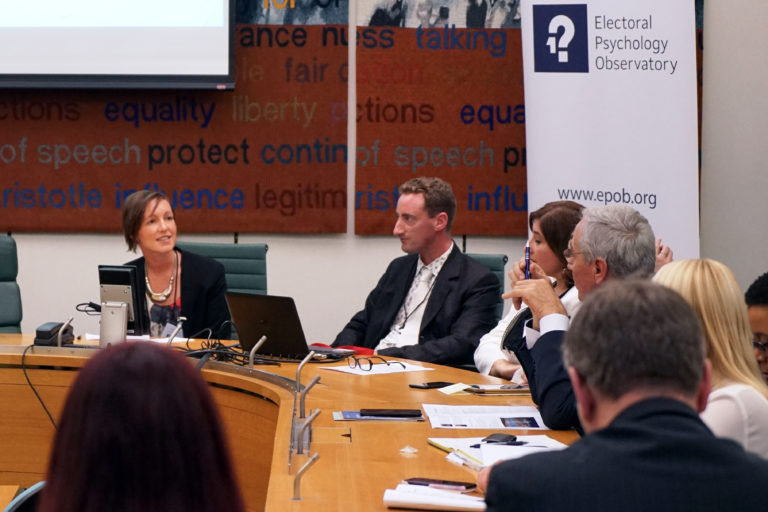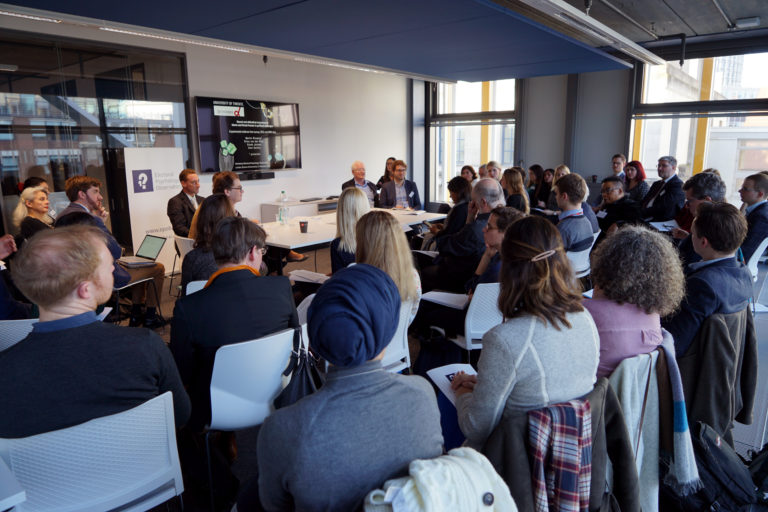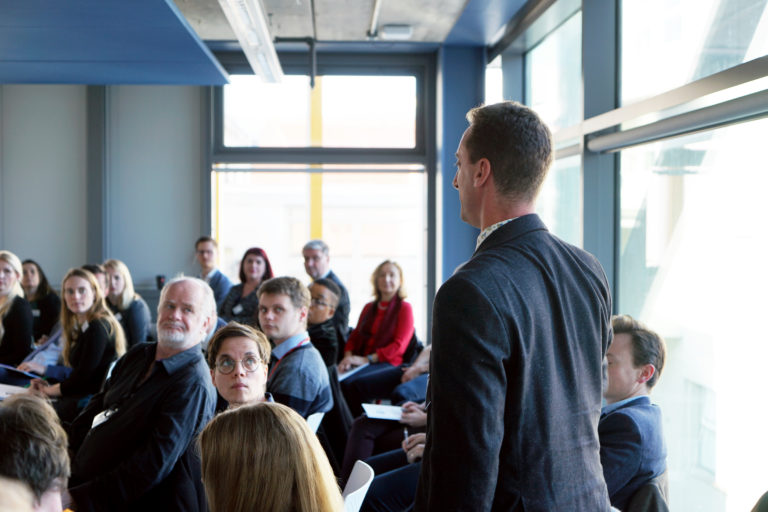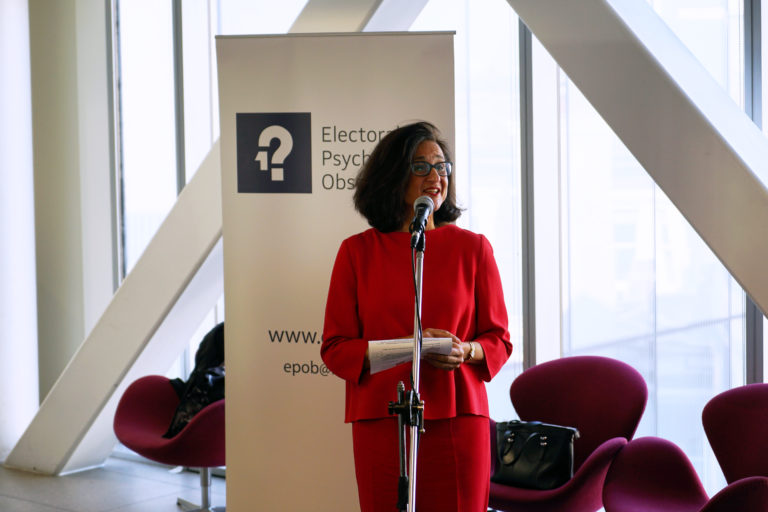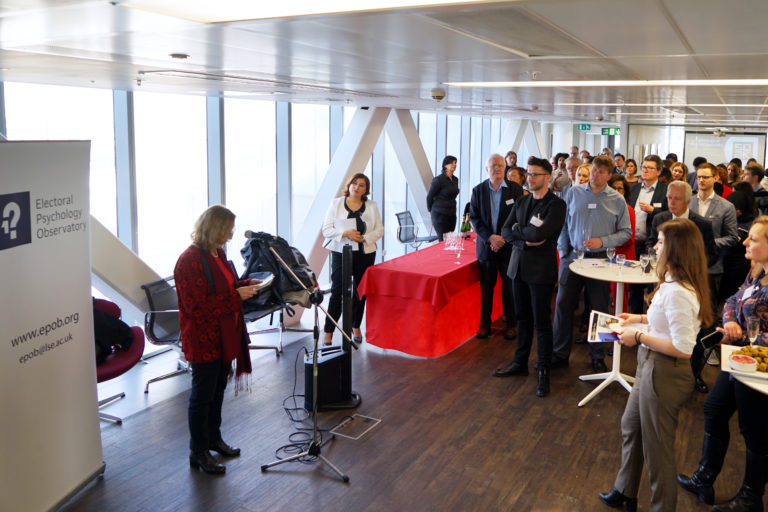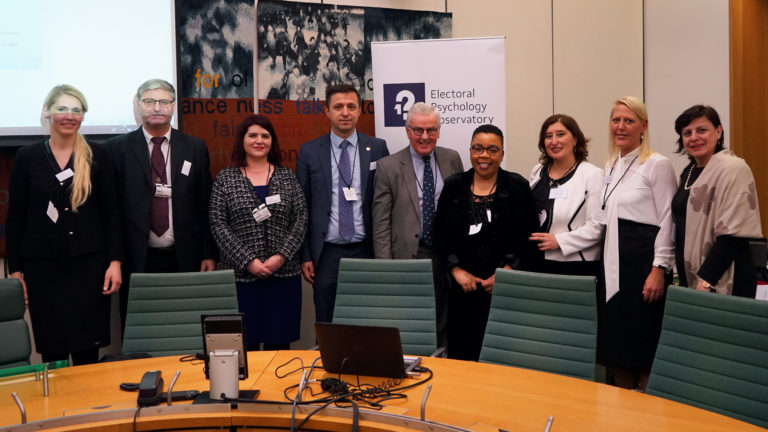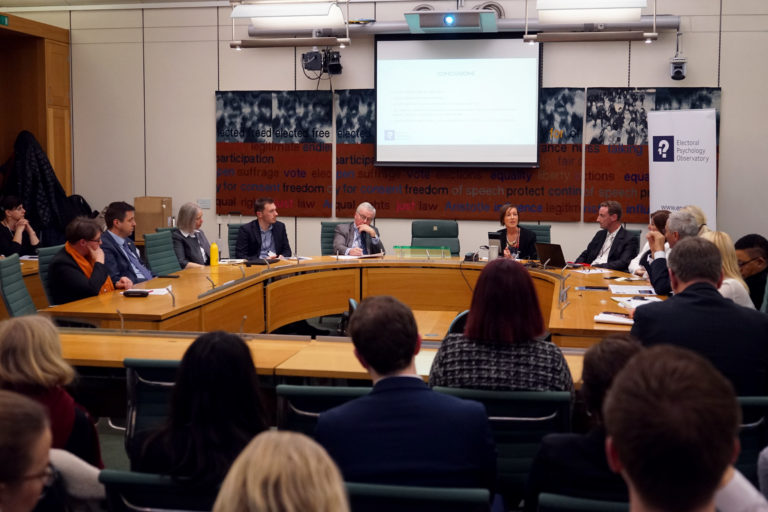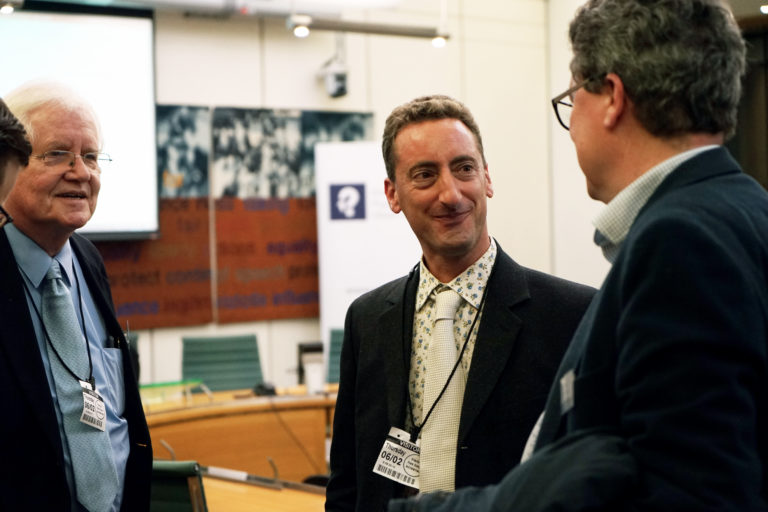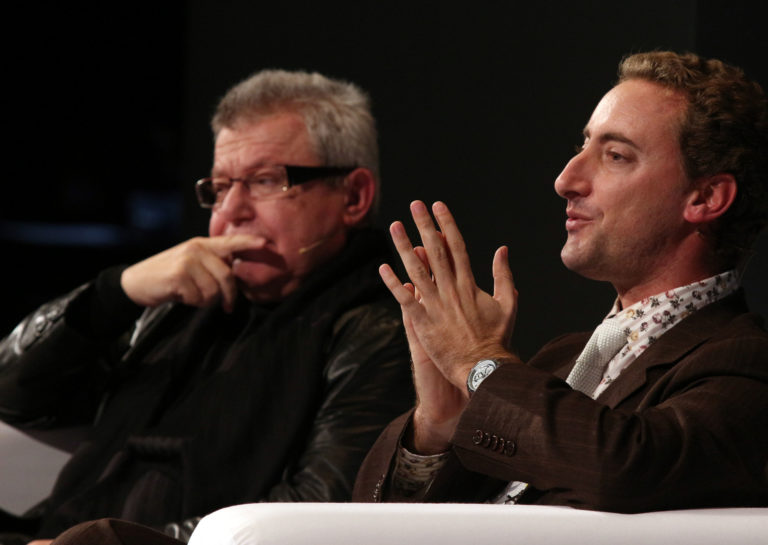4th Anniversary Event for the Electoral Psychology Observatory at United Nations (New York)
On Global Elections Day in 2024 we celebrated our 4th Anniversary with an event and panel discussion at the UN on ‘Democracy and the (inter)generational challenge’.
The event was organised with the support of the EU delegation to the UN, our 10th Anniversary ESRC Best International Impact Award, and the European Research Council. A presentation of some of our newest findings was followed by a panel discussion featuring Anna Nyqvist, Chair of the Swedish Election Authority, Professor Robert Erikson from Columbia University, one of the most eminent scholars in electoral behaviour, and leading members of the United Nations Development Programme’s Governance team.
We showcased and discussed findings on two key aspects of our latest research:
- Functions of democracy: how to adapt to citizens who have outgrown democracy?
As part of the research we are conducting in the ERC AdG ELHO (“The Age of Hostility”) in 27 democracies and using mixed quantitative, qualitative and experimental methods, an early incidental and crucial finding is that when asking citizens what they want to use democracy for, their answers 1) vary a lot and 2) often diverge significantly from the functions democratic institutions were designed to offer. We show that primary functions of democracy vary a lot across categories, with the most disengaged categories often those prioritising functions institutions were least designed to fulfil.
- Hostility and intergenerationality: navigating the risks of hopelessness and humiliation
In recent years, much has been made of the role of polarisation (ie politicised groups closing ranks but moving further away from each other) in fuelling democratic crises. A brutal conclusion of ELHO findings is that this reading is mistaken or at least obsolete along generational lines: older generations are indeed polarised, but the young are hostile – in other words, whilst older people feel close to those who vote like them but increasingly negative towards opposite voters, the young are negative towards everyone including those who vote for their own party, creating new challenges.
You can watch the event video below:
3rd Anniversary Event for the Electoral Psychology Observatory
In celebration of EPO’s third anniversary, Global Elections Day and the recent ESRC Celebrating Impact Award for “Outstanding International Impact” jointly won by Michael and Sarah, we hosted an event in UK Parliament. The event “The State of Electoral Hostility” was co-chaired by Sir Peter Bottomley (Father of the House, Conservative) and Dr Stella Creasy (Labour).
The research presentations (powerpoint slides) by Michael Bruter and Sandra Obradovic can be found below:
EPO Anniversary Event – Talk by Michael Bruter
EPO Anniversary Event – Talk by Sandra Obradovic
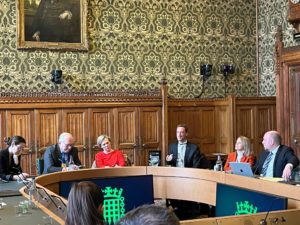
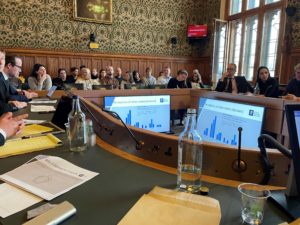
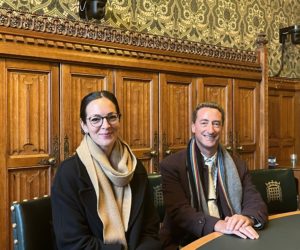
EPO 2nd Anniversary – Electoral Hostility: is the sanctity of elections under threat? | LSE Online Event
A mere few years ago, who would have ever expected some people unhappy with the results of a US Presidential election to forcibly enter the Capitol to prevent a democratic result from being certified? Between the disruption from external threats such as covid and terrorism and the ever-increasing tension and frustration between voters, is the sanctity of elections under threat? Is there a risk that some will consider that electoral democracy – the very foundation of our modern societies – should no longer apply when they are unhappy with its outcomes?
On Global Elections Day in 2021 we celebrated the first anniversary of our Electoral Psychology Observatory and discussed the future of the sanctity of electoral democracy when it is doubly challenged by external threats and electoral hostility.
Official Launch of the Electoral Psychology Observatory
6th February, 2020 in London, UK.
On Global Election Day, Thursday 6th February 2020, we welcomed guests from across the world to the launch of our new Electoral Psychology Observatory: which included the launch of our two projects “The Age of Hostility” and “First and Foremost: the electoral experience of first time voters”, our forthcoming book Inside the Mind of a Voter (Princeton University Press), and our new online Almanac of Electoral Ergonomics!
